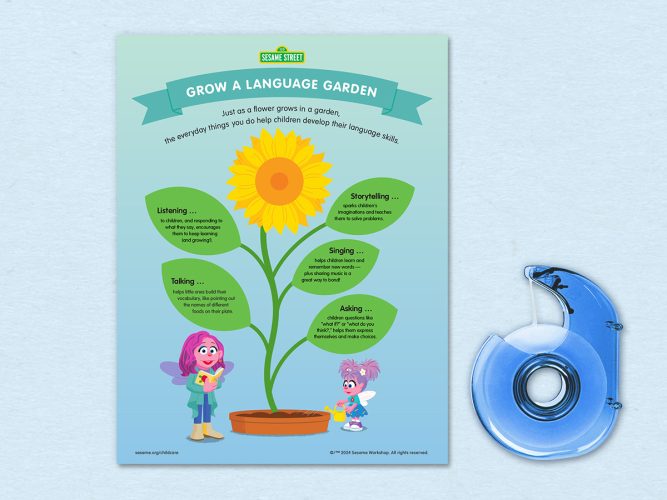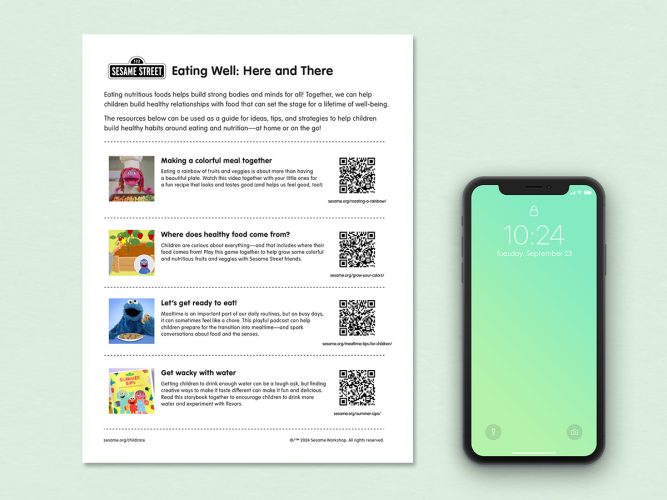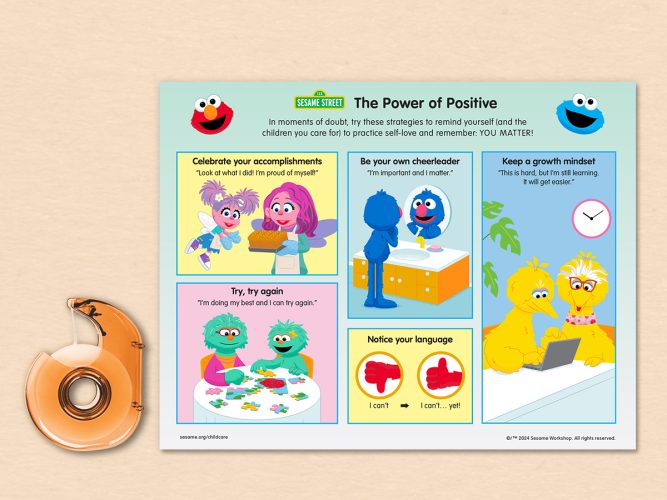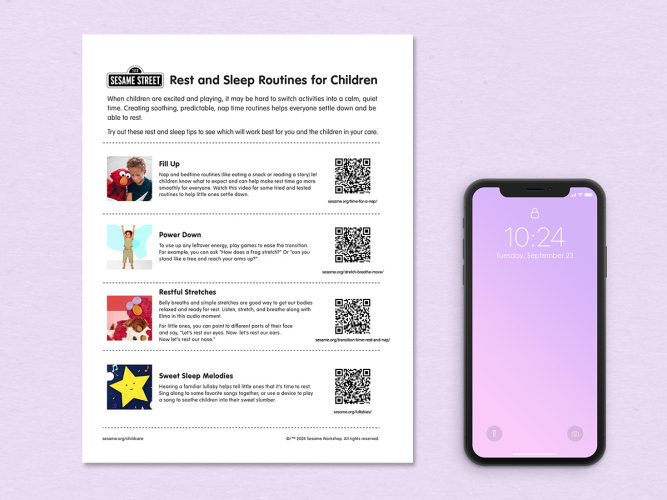
Mindful Parenting
Try these tips for remaining calm during stressful family moments.
Children are learning to express their emotions. They don’t yet have the tools to talk about their feelings and this can lead to big frustration and bigger meltdowns.
As parents and caregivers, it’s your job to be supportive even when children are expressing big emotions. This will help them manage their reactions and allow them to feel safe when confronting scary feelings. But remaining calm can be a tricky task. Consider these ideas:
- If you feel yourself getting stressed and overwhelmed, try to remain present in the moment. Notice what you see around you. What do you hear? What sensations do you feel in your body?
- Take a minute to be aware of your feelings. If you feel too stressed and overwhelmed to help your child through a big emotion, it’s okay to take a moment to step away. Let your child know, “I’m having big feelings too. I’m going to go stand in that corner and take ten deep breaths. That will help me to calm down so that I can help you.”
- Remind yourself that you’re good enough. Sometimes just getting through the day is a major feat. Be kind to yourself. You can’t be at your best everyday. It’s okay to fail big sometimes.
- Find your “happy place.” It may sound silly, but it can help to think of a happy memory or imagine a peaceful location.

Growing a Language Garden: Everyday Language Development
A reminder of the simple things you do every day that nurture children’s language skills.

Cultural Connections through Family Engagement for Building Stronger Bonds

Mindful Caregivers
Practicing mindfulness is a great way to slow down and reset.

Tracking Child Development: A Caregiver’s Guide
Keeping track of milestones and going to routine screenings helps children stay healthy and thriving.

Eating Well: Here and There
A printable page with easily shareable resources to encourage children’s healthy relationships with food.

The Power of Positive
Gentle reminders for practicing self-kindness and compassion.

Routines to Help Children Rest and Sleep
Soothing, predictable, nap and bedtime routines can help children settle down for rest.
